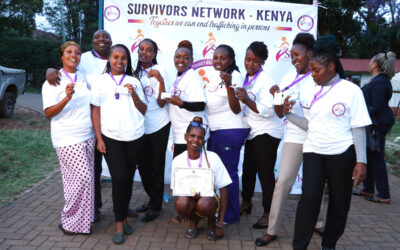Political candidates are often asked to take pledges to win votes. In the U.S., many candidates pledge to never raise taxes or to safeguard reproductive rights for women.
In Brazil, our front-line partner organization has been asking politicians to promise that they’ll fight modern-day slavery. For Dilma Rousseff, taking the pledge was a winning commitment.
Rousseff will be sworn-in to a second term as president on New Year’s Day, leading the Workers’ Party to its fourth consecutive term and underscoring the desire of Brazilians for a political agenda that focuses on social programs for the poor.
Brazilians went to the polls in October to choose their candidates for president and vice president – as well as for governorships and federal and state offices. Voting is mandatory in Brazil, a country with 200 million people. Taking advantage of a large voting population, Repórter Brasil has sought to raise awareness of modern-day slavery by making the issue of combatting slave labor a mandatory part of all political campaigns and official political agendas.
For the past five election cycles, Repórter Brasil has collaborated with the National Commission for the Eradication of Slave Labor to write the “Protocol Against Slave Labor.” The purpose is to urge political candidates to make anti-slave labor initiatives a priority once elected. The protocol is meant to serve as a tool for the media, civil society, and ordinary citizens to monitor the degree to which elected officials incorporate slave labor eradication into public policy after they are elected.
Some of the expectations laid out by the protocol include:
- The candidate will resign if there is evidence of involvement in employing slave labor. All politically appointed advisors will be fired if there is evidence of involvement in slave labor.
- There will be further implementation of actions established by Plans for the Eradication of Slave Labor at the federal, state, and municipal levels. Recently, Brazil’s Congress approved a constitutional amendment that allows authorities to confiscate land in rural and urban areas where slave labor is found to take place.
- Candidates will stand by the current legal definition of modern slave labor, which has received considerable praise from the U.N. Rapporteur on Contemporary Forms of Slavery. Brazil has embraced one of the most advanced legal definitions of modern slave labor, which goes beyond what is enshrined in several international treaties by incorporating degrading labor conditions and long and exhausting hours of work.
- Candidates will not promote businesses that use slave labor or child labor inside and outside Brazil.
- Candidates will provide protection to human rights defenders and activists working to combat slave labor.
- Candidates will allocate financial resources and political support to official investigation teams. Brazil has created “Mobile Units” that work with labor inspectors to investigate slave labor complaints in remote areas of the country.
- Candidates will promote the implementation of policies that support the social and economic rehabilitation of rescued workers and provide basic education and job training skills.
- Candidates will continue to support the “Dirty List,” a registry of businesses found to employ slave labor.
This year, 12 candidates signed the protocol, including President Rousseff. Her opponent, Aecio Neves, did not.
Repórter Brasil and the National Commission for the Eradication of Slave Labor will closely monitor the candidates after they take office to ensure they remain committed to their pledge.
Learn more about Repórter Brasil and the FTS anti-slavery program in Brazil on our Brazil webpage. Watch police liberate slaves and hear reflections from the woman who helped create Brazil’s groundbreaking anti-slavery program on our Vimeo page.



